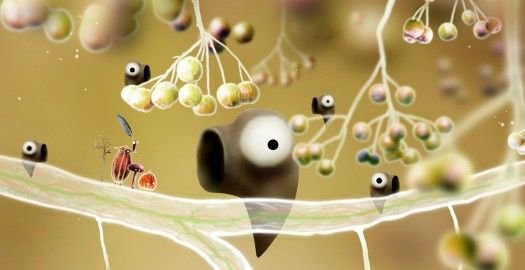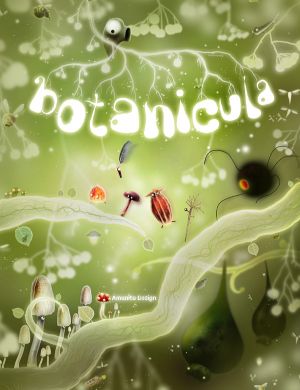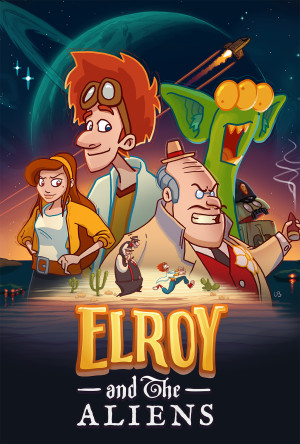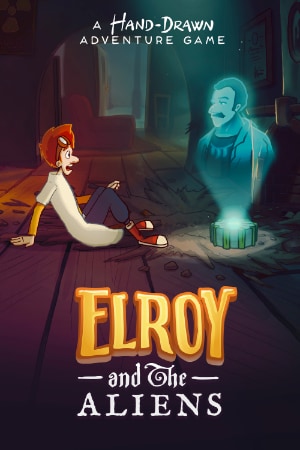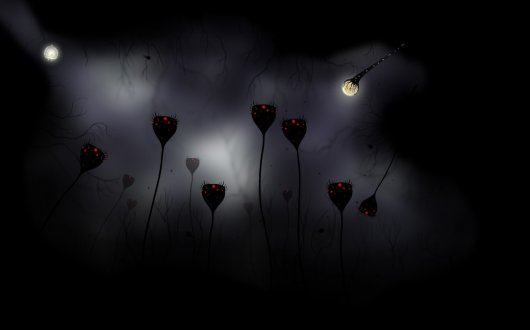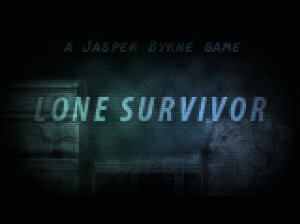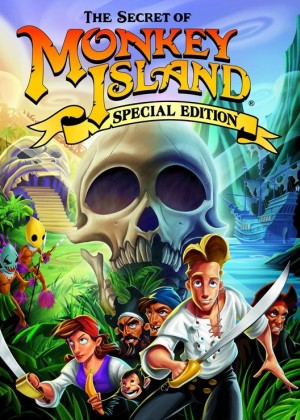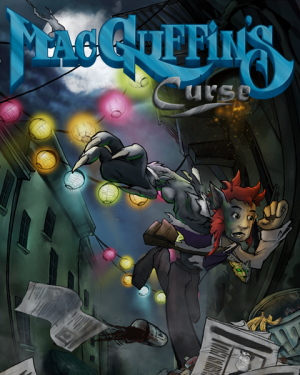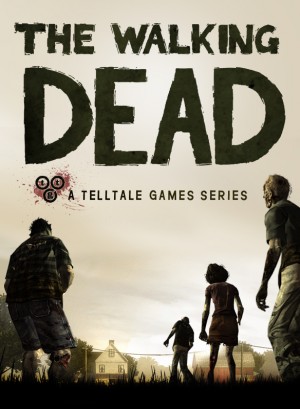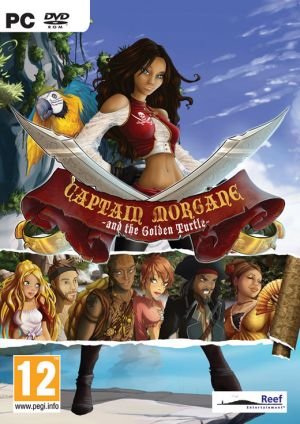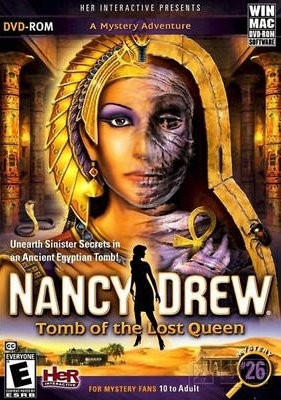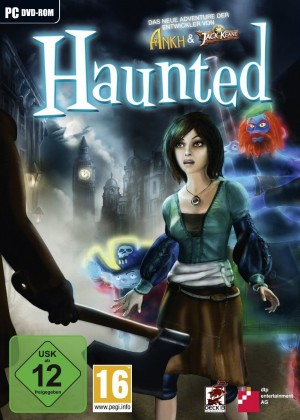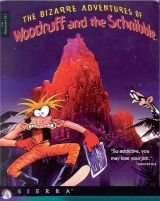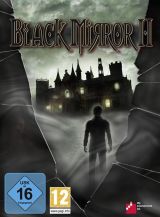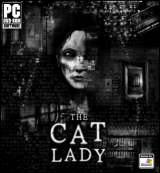Review for Botanicula
Game information
Adventure Gamers Awards
A glowing seed blossoms into a beautiful tree even as the calm, almost meditational music lulls you into a warm, secure haze while you play idly with the brand new buds, unprepared for the sudden, vicious attack of an amorphous, spidery blob that mercilessly chomps and stomps through everything in its way. A lone seed slips through its grasp, and fortunately lands on a gentler soul, a leaf-shaped tree-creature that instinctively knows what it has to do: gather his friends – a seed, a winged insect, a stick flower and a toadstool, and embark on a race against time to save their tree, home to an entire collection of flora and fauna both adorable and repulsive, harmless and predatory. Botanicula, the newest offering of indie Czech studio Amanita Design, is a surreal adventure that follows the five protagonists on their grand quest, tracing their journey as they use their capabilities and resourcefulness to fend off the parasites before they suck the tree and most of its inhabitants dry.
You’ll sense you're in for something special the moment the installer launches with a cheerful whoop chorused by the little guys, and as the game unfurls its fabulously illustrated canvas with nary a word of greeting, you know for certain this is no ordinary game. The story is simple, built on the comfortably familiar theme of good versus evil, and it allows you to swing into action without meandering about on moral dilemmas. The bizarre tasks, which cover a wide variety from object collection to arcade sequences, are surprisingly logical despite the eccentric appearance of the game itself, and range in difficulty from very easy to reasonably tough. The real challenge arises from the style of gameplay: an uninstructed, fairly non-linear system which leaves you to fend for yourself in a sizable, often maze-like playing area. This may overwhelm you initially, but you soon settle into a rhythm, drawn in slowly but surely by the organic world with its fantastic shades and sounds, and the vast menagerie of cartoony, anthropomorphic characters, both plant and animal. The parasites are more than a worthy adversary, aggressive and fearsome, and together with the innovative and often tricky obstacles, will demand that you bring your A-game to this adventure.
Amanita's distinctive method of intentionally skimping on instructions – there are essentially none in this game – makes Botanicula a game that takes some getting used to. Right off the blocks, you're on your own, without the slightest inkling of what to do. A novice to this format, I spent the first couple of minutes staring at the starting screen of the graceful tree, waiting for something to happen, before I realised that I had to make things happen. During the engrossing, unstructured adventure that ensues, you're compelled to experiment, evaluate and devise ways to interact with the environment before you can get to solving the actual problems facing the tree and its residents. Unfettered by the restrictions of instruction, you're free to cavort around the game world, trying anything and everything to find out what works and what doesn't.
This experiment-driven gameplay multiplies the challenge of its deceptively simple approach by requiring you to first decipher the micro-objective, then determine how to achieve it in terms of sheer mechanics ( click more than once? rapidly click repeatedly? click and hold? click, hold and drag, perhaps?) till you eventually elicit a result or discover a pattern. Once I grew accustomed to the quirky format, I relished the experience, to the extent that I think rushing through this game using a walkthrough every time you're 'stuck' would significantly lessen the immense enjoyment you can derive from actually deducing how to extract yourself from the sticky situations.
You're not restricted to an ordered sequence of tasks, but the game world is broadly divided into four segments – the upper, healthy half of the tree, where you start; the lower half, ravaged by the parasites; underground around the roots; and finally into the core of the 'infection'. Each area takes about an hour to complete, and you're free to explore in any direction, barring obstacles and enemies. Arrows mark the directions in which the Five can travel, though there are many other ways they can arrive at their destinations: falling off surfaces, being carried off by other creatures, flying via an ingenious helicopter, or even submerging in a living submarine. Early on, you collect a leaf-map, which sketches out areas as you visit them and indicates your current location, making it easier to keep your bearings around the convoluted landscape.
Botanicula is chock full of puzzles of every sort. The inventory-based quests are straightforward in concept – the Five must scour the tree and its environs for certain items indicated by silhouetted forms in the inventory atop the screen. Some tree-beings they encounter en-route offer their help in exchange for favours, like procuring bait for a fisher-thing or retrieving the lost children of a distressed mommy-critter. These requirements are indicated via graphic thought bubbles which appear above the askers' heads, then enlisted in the inventory. Often, groups of scattered items have to be collected, like five keys or fourteen running ostriches, all of which must be gathered before they can be used. Objects sit in their reserved spots in the inventory until needed.
One of the most interesting aspects is the way the objectives lead from one to the next, initiating intelligently-devised chain reactions of actions and consequences that nudge, shove, or hurtle the Five to their victories. There are a bunch of logic-oriented puzzles which range in difficulty from nice and easy to delightfully clever to borderline aggravating, like organising a set of cup-flowers to direct a flow of water, bouncing objects around in proper sequence at correct angles, and clicking carnivorous tentacles in the right order to deactivate all of them. Some solutions demand discipline to unravel through trial-and-error, such as deciding which extending arms of a protagonist are the right ones to fetch an object, and at least one – constructing an animal from three randomly generated parts – seems to be based on pure dumb luck.
Several minigames involve varying degrees of mouse-control, such as one in which you have to carefully nudge lazily-floating orbs into holes, and another where you have to negotiate a beetle-race around a circular arena by rotating a centrally-placed handle. There's even a volleyball match of sorts, and some arcade sequences like a race through a convoluted maze while pursued by a seriously-annoyed larva, and a frantic descent through the belly of a monster while firing at creepy-crawlies and space shuttles. While none of these challenges are cripplingly difficult, some may require patience and a few rounds of practice to master.
It’s not like the Five don't make mistakes themselves, either. Their inherent exuberance often causes them to act without caution, and some quests involve extricating them from crises their carelessness or curiosity have landed them in. On occasion, you have to pick one of them to solve a puzzle based on their innate capabilities. Choosing the wrong one isn't fatal, or even a bummer; on the contrary, these erroneous decisions usually yield hilarious non-results that make it worthwhile to intentionally select clearly unviable options before settling for the correct one. That said, it's disappointing to never have the Five work cooperatively in tandem. There’s considerable frittered opportunity to creatively use combinations of their varied skill-sets, such as the stick flower's impressive elasticity, the winged insect's ability to fly, or the toadstool's plump, bouncy head, to resolve issues, or even establish a clear group dynamic. As it is, given the absence of back-stories and intra-group interaction, the Five usually remain clumped as a generic 'tool' instead of serving as distinct individuals in their own right.
Almost every screen has a number of hotspots, some useful, some merely entertaining. There are various little activities to distract you from your quest: you can click flowers into blooming, disturb bugs ensconced in nooks and crannies, leap off springy branches, pluck dead leaves, play chase with naughty baby-critters, watch shockingly gory puppet shows, zone out in a psychedelic haze after marching into a cluster of magic mushrooms, and even seek out pictorial storytellers to learn more about the history of the forest. The busy world of fervent little beings offers many moments of comedy as they interact with each other – talking, laughing, fighting, eating, sleeping, colliding. Each action is depicted in great and often hilarious detail, like when the Five try to wrestle a key from a bird's grip, or when one of them is grabbed by an irritated rat-like creature. Another amusing sequence has a genie granting quirky wishes, while you get a whole new reference point for the iconic phrase, "Houston, we have a problem" as matters progress. Of course, you can choose to remain singularly focused on your goals, but refraining from getting fully immersed in this merry, vibrant world would take away a considerable chunk of the overall charm of this game.
Right from the pretty opening cinematic, Botanicula is a visual treat in numerous big and small ways. The translucent home-tree has visible, delicate veins running through it – you can see the sap flowing and cellular organisms swimming inside – and is host to about a hundred species of flora and fauna, catalogued into an encyclopaedia of animated photo-cards as you encounter each. There are buzzing, hovering bee-like spheroids, assorted crawlies, toadstools and fungi, flying fish, crabs, frogs, hummingbirds and woodpeckers, snails, slugs, ants, bioluminescent underground and underwater life-forms, and even a gentle giant tortoise, plus a terrifying flagellated protozoan guard of a parasite chamber. Each creature has a distinct appearance, personality and behaviour, like the long-suffering mother of an infant something, a pesky rattle-bug that wants to keep playing with the Five, and the friendly rotund critters that have a fully-appointed colony replete with a theatre and a bar. Not everyone is friendly, though the villains are easy to spot, being distinctly uglier than the friendlies, with jagged teeth for added effect. The parasites themselves are drawn like spiders, with a nebulous spherical black body and stretchy, grabby thin black legs, while the more virulent versions are an angry red in colour, and sometimes furry as well. Their simplistic design doesn't detract from their ferocity by even a degree; every time the Five encounter one, you too want to scamper away as fast as they do.
The two-dimensional screens boast unique and fabulous art which is exceedingly simple in execution – often just lines and fuzzy blobs, but astonishing in the amount of detail included. Hazy backgrounds create an illusion of depth, and colours are used with superb skill to incite vivid sensations in the absence of speech and descriptions. You'll never be left wondering if a certain area is 'safe' or not (though there are no fatal circumstances to worry about), but you may pause often to bask in the surreal settings. The upper regions of the tree are done in rosy pinks, soft yellows and lush greens, but once you get to the lower half, destroyed by the parasites, the graphics morph into a disquieting collection of drained leaves, rotten berries, pathetic carcasses of tree-creatures, and the reddish-gray, withered body of the tree itself, though given the cartoony aesthetic of the game, even this can best be described as beautifully ugly. The underground scenes, though dark, are done mostly in warm browns and golds, while the claustrophobic confines of the blood red-and-black insides of the infection induce true horror when one of the Five is stranded within. The 1440 x 900 presentation offers the options of displaying at either 100% or 60%, in full-screen or windowed modes, but are bounded by black edges at any resolution higher than the native one.
Like the art, the abundant animation is also first rate, though never overtly extravagant. Physical gestures are excellently adapted, like when the Five creep stealthily past dangerous areas, or shyly ask the genie for their wishes. The supporting cast is equally well treated, whether weeping their eyes out or sulking or even waiting impatiently for the Five to do something for them. The movement of the quick, multi-legged parasites is scarily aggressive, especially the pulsating motion as they relentlessly suck up sap from the tree. This is depicted with remarkable simplicity of both graphics and sound, and yet is convincingly horrific when experienced from the perspective of the tiny tree-creatures, making you feel an anxious urge to save their tree. Casual shocks are also scattered about as the Five inadvertently encounter the not-so-friendly other residents, and there's a heart-stopping moment when they fall several stories towards the gaping maws of a beast. A cute, brief sequence even features Easter eggs of Amanita's earlier releases, Samorost and Machinarium.
As expected with a thriving ecosystem, sounds abound here too. A medley of realistic life-sounds like scratches, buzzes, cricks, and hoots enliven the atmosphere. The critters communicate in chipmunk-y gibberish, but are emotive enough that you always understand what they are saying, or at least feeling. Lullabies, chants, shrieks of joy, cries of despair, shocked intakes of breath, hysterical tears, the soft clicking of the Five's footsteps – each sound adds to the overall ambience of levity or danger. Botanicula also features a custom soundtrack by Czech alternative band DVA, and the background score is indeed quite different from the usual staple. The music is often very quiet, a soothing (or tense, when appropriate) hum almost lost amidst the chitter-chatter, but elevates to euphoric drumbeats when challenges are surmounted, and dissolves into melancholic wailing during particularly unsettling sequences. The band also gets a direct plug when a wish grants you the chance to choose the instruments of the track being played for you, and there's quite a bit of bonus entertainment like an impromptu jam by a frog quartet and a weird jukebox-thingy.
Really, Botanicula is a remarkable game in almost all aspects. Its inimitable art and styling, though never ostentatious, is spectacular, subtly captivating you in concert with the unusual background score. The animation is smooth, detailed and realistic, sometimes disturbingly so, and the game uses its vast repertoire of colours and sounds with great efficiency to create a surreal world that completely immerses you, lingering even after you've finished playing. However, while the Five are endearing enough, they are not fleshed out adequately, either individually or as a group, to be truly memorable in their own right. The experiment-oriented gameplay format, totally bereft of direction and occasionally demanding considerable out-of-the-box thinking and some adept mouse-handling, may not be everyone's cup of tea, and may frustrate those unwilling to spend the time and effort warranted even for seemingly-pedestrian tasks.
Those who do persevere, however, are in for an incredibly imaginative, action-packed, and rewarding journey that covers a hundred-plus unique characters and nearly as many tasks within a span of about four hours. The most engaging aspect of this game, however, which binds together the excellent production quality, creative gameplay, and diverse characters, is its soul, the indefinable “it” factor that makes you feel as if you're a part of the environment and inspires you to want to save the home-tree and its inhabitants, even in the face of seemingly insurmountable odds. Botanicula lovingly spins a tale of good versus evil, but it's not only that; it's a quirky, fun adventure game built with evident affection and attention, and is sure to task your mind and win your heart if you take the initiative to explore its vibrant world the old-fashioned way.
WHERE CAN I DOWNLOAD Botanicula
Botanicula is available at:
- GOG
- Itch.io --50%
- HumbleBundle
- Amazon




